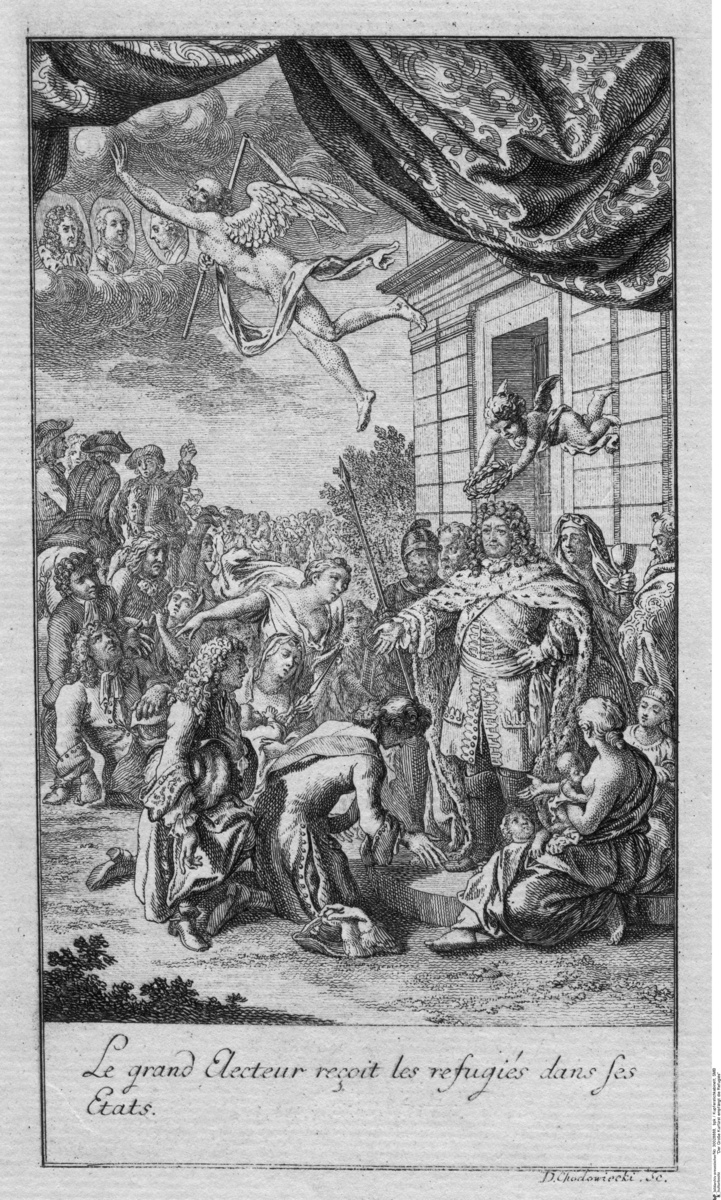Source

Source: bpk-Bildagentur, image number 30028888. For rights inquiries, please contact Art Resource at requests@artres.com (North America) or bpk-Bildagentur at kontakt@bpk-bildagentur.de (for all other countries).
The 1685 revocation of the Edict of Nantes was among Louis XIV’s greatest blunders. Issued by Louis’s grandfather, Henry IV (1589-1610) in 1598, the edict had granted religious freedom to the French Calvinists, also called the Huguenots. Their renewed persecution under Louis XIV proved a blessing for the Electorate of Brandenburg. By inviting the forced emigrants to his territory – still depopulated by the Thirty Years War (1618-1648) – Frederick William (“the Great Elector”) (r. 1640-1688), himself a staunch Calvinist, initiated a highly effective settlement program (though most of the Huguenot refugees settled in lands other than Brandenburg-Prussia). A massive loss for France, the emigration of the Huguenots gave Brandenburg, and eventually Prussia, an invaluable infusion of manpower and skills, and proved a great public relations victory among the Protestant powers of Europe. In the etching reproduced below, Frederick William receives the exiled Huguenots, who fall to their knees and bow before him in gratitude.” Etching by Daniel Chodowiecki (1726-1801), 1782.

Source: bpk-Bildagentur, image number 30028888. For rights inquiries, please contact Art Resource at requests@artres.com (North America) or bpk-Bildagentur at kontakt@bpk-bildagentur.de (for all other countries).
bpk / Kupferstichkabinett, SMB